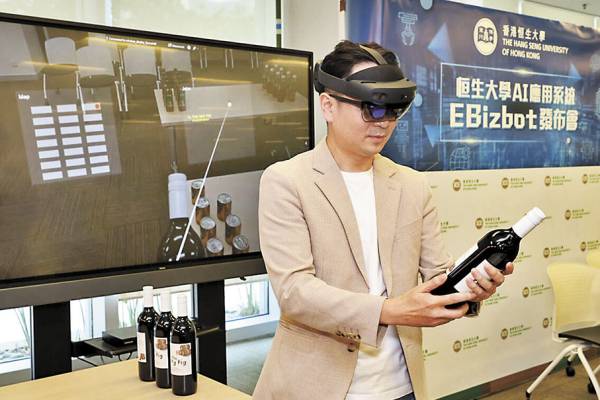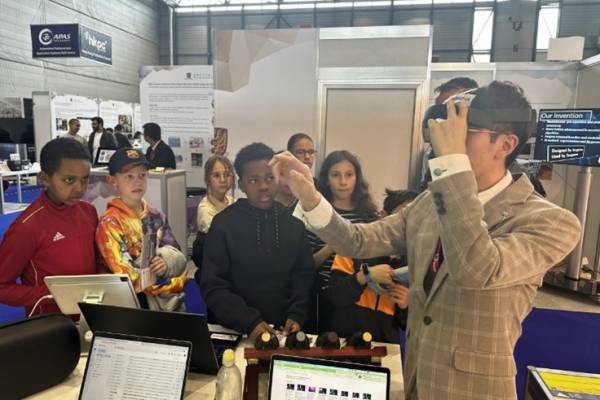Summary of Impact
The growing trend of e-commerce in Hong Kong is presenting significant challenges for small and medium-sized enterprises (SMEs) in the logistics sector. As more consumers turn to online shopping, they expect quicker and more efficient delivery services, which increases pressure on logistics companies to improve their operations. However, SMEs face high operating costs related to rent and labour, making it difficult for them to expand their logistics capabilities to meet these demands. Investing in advanced technologies, such as automated systems and data analytics, is essential for improving efficiency and meeting customer expectations, but these investments can be prohibitively expensive for smaller firms. This drives the demand for an innovative approach to enhance the operational efficiency and competitiveness of SMEs.
Digital transformation shows a potential to benefit SMEs by utilizing technologies such as the Internet of Things (IoT), robotic process automation (RPA), artificial intelligence (AI), and mixed reality (MR). The impacts to practitioners include (i) The adoption of IoT allows SMEs to more easily gather operational data; (ii) The adoption of RPA makes it simpler to gather online data for analysis through software robots; (iii) The adoption of AI improves decision-making by analysing data more effectively; (iv) The adoption of MR enhances operational efficiency through better visualization. Overall, by adopting these digital technologies, SMEs can enhance their operation efficiency and stay competitive in a fast-changing digital market.
Social Impact
- https://www.hsu.edu.hk/en/geneva-international-exhibition-inventions/
- https://english.dotdotnews.com/a/202310/16/AP652cffcae4b0935e502135d1.html
- https://www.wenweipo.com/a/202310/17/AP652d9955e4b0fdf828a2f3ac.html
- https://orientaldaily.on.cc/content/news/odn-20231017-1017_00176_224/
Underpinning Research
The impact is based on the research project that took place in Hong Kong, supported by the Innovation and Technology Fund of the Hong Kong Special Administrative Region (HKSAR). This project was led by Ir Dr. George Ho To Sum, Associate Professor in the Department of Supply Chain and Information Management at The Hang Seng University of Hong Kong.
This project introduces the Smart Robotic Workforce System, which integrates IoT, RPA, AI, and MR to facilitate a thorough digital transformation of traditional warehouses. A local SME in the logistics field was invited to adopt this solution as a case study. The results reveal that the proposed system enhances data collection, integration, management, and strategic decision-making in e-commerce operations.
Project Outputs
During the project, Dr. Ho utilized his research idea to participate in the Geneva International Exhibition of Inventions 2023, the largest global event dedicated exclusively to inventions. This exhibition aims to recognize and showcase significant international innovations. In that year, over 1,000 inventions from approximately 40 countries and regions were presented, and Dr. Ho received a Silver Award. This recognition highlights the project's innovative nature and its global relevance. It also demonstrates HSUHK's commitment to knowledge exchange, translating research and innovation into meaningful societal impacts. This award has been widely reported in various news outlets across Hong Kong, including DotDotNews, Wenweipo, and Oriental Daily News, among others.
In addition to this award, Dr. Ho has actively contributed to the academic community through several publications in international journals and books, showcasing the project's significance and its broader implications in various fields. Through these efforts, Dr. Ho enhance the academic field by disseminating innovative research findings that contribute to the collective knowledge within various disciplines, thereby inspiring further inquiry and exploration.
To broaden the reach of this project, a workshop titled "Workshop on Smart Robotic Workforce: A Digital Twin-based Solution for Process Re-Engineering in Small and Medium Enterprises" was held to disseminate the results. A case book has also been created to share these findings with a wider audience.
Overall, Dr. Ho exemplifies how academic research can lead to advancements that benefit society as a whole, demonstrating the vital role that innovation plays in addressing contemporary challenges. His efforts not only enhance academic discourse but also pave the way for practical solutions that can be implemented in real-world settings.
In the case study, IoT devices were deployed to collect operational and environmental data from the warehouse. At the same time, RPA was implemented to automate repetitive tasks such as the collection of online sales data and product descriptions. This setup provides the necessary data for AI to analyze sales patterns, which also supports the decision-making process of generating product descriptions based on collected data. Additionally, MR technology is adopted to provide pickers with a digital overlay of the warehouse environment, displaying real-time information about item locations. Overall, the integration of these technologies enables a comprehensive system that significantly enhances warehouse operations.
Publications
- Ho, G. T. S., Tsang, Y. P., Wu, Q., & Tang, V. (2023). ck-FARM: An R package to discover big data associations for business intelligence. SoftwareX, 22, 101341.
- Ho, G. T. S., Wang, Y., Tang V., Sun M. (2024). A Real-time Augmented Reality-based Intelligent Integration System for Enhancing Operational Efficiency and Data Synchronisation in E-commerce Industry. IEEE Transactions on Engineering Management, submitted.
- Chun, H. O., Ho, G. T. S., Xhafa, F., Andrew, W. H., & Van Hille, R. (2022). Collective Intelligence for Smart Cities. Elsevier.




